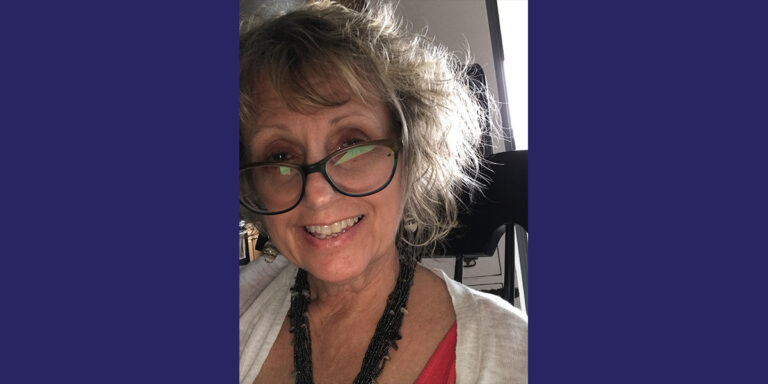A Testimonial from Kirsta McCullough
Columbia Lighthouse for the Blind (CLB) became my primary resource for services when I moved back into the Washington, DC area from Florida. I initially continued orientation and mobility training which is vital for my independence, confidence, and living a rich and full life. In order to navigate a new city – not just to doctor’s appointments and the grocery store – I learned the subways, buses, unusual traffic, and sidewalk patterns with a cane. Traveling safely is challenging when visually impaired, and it is a form of physical therapy to me; there is a certain knack to balancing, figuring out the proper use of a cane, and navigating around objects which I do not immediately understand or see. I have received wonderful one-on-one instruction and saintly patience from my CLB orientation and mobility instructors, Lisa Payne and Denise Wyatt.
Another basic requirement of my well-being is technology. In order for me to conduct business affairs and remain connected to society, I am required to use essential devices: a computer, cell phone, and an iPad. I need specialized training in order to operate accessibility features on these devices. With the help of CLB, I continue to learn progressively complex skills. These skills and methods are not easy to learn; they are complicated, and time consuming. The simplest tasks such as typing a letter, a text message, or checking my bank statement entail at least twice as much time as do they do for a person with satisfactory vision. CLB’s technology instructors are proficient in all forms of assistive technology, keep apprised of tech updates, and constantly learn how updates and upgrades affect accessibility features. For example, when my devices (an older MacBook and iPhone) ran updates, the accessibility features required typing in commands rather than using the touchscreen or a mouse. I was unable to figure out the new commands. Nai Damato of CLB addressed the issues and provided instruction which enabled me to continue working on my computer and phone.
As I continue to take on everyday tasks, CLB has been an important resource and even a helpful advocate. I am frequently faced with complexities such as inaccessible websites and lengthy forms on the internet. In a recent experience with AT&T, I needed help in order to sign up for AT&T’s National Center for Customers with Disabilities (NCCD). AT&T’s website was not properly coded for individuals with vision impairments. I was unable to follow the links myself. With the help of Nai Damato, the problem was clarified and resolved. I have also progressed with voiceover, typing, email, and numerous helpful programs such as the National Library Service’s Braille & Audio Reading Download (BARD) service. Overall, I feel better organized.These are a few examples of concrete ways that I have found strength and support from CLB. It is fearsome losing one’s eyesight, and CLB is a connection which does more than offer a helping hand. It offers education at many levels, and approaches instruction with respect and dignity. I am very thankful.


